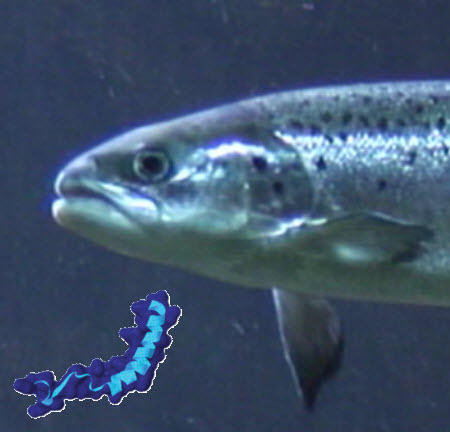Appetite and Energy homeostasis
Regulation of appetite and energy homeostasis are closely integrated
Main content
Control of appetite is closely integrated with digestion, and a number of appetite regulators characterized in brain are also key-factors of the digestive function. The hypothalamus receives both short-term (appetite) and long-term (energy balance) signals and produces neuropeptides which will either stimulate (orexigenic) or inhibit (anorexigenic) appetite and food intake.
We work with several of hormones and neuropeptides that involved in regulating the appetite and energy homeostasis including CCK, Ghrelin, PYY, POMC, CART, NPY and Leptin. This research is relevant to appetite problems related to first feeding in aquaculture, alternative feedstuffs in aquaculture, early onset of puberty, energy allocation and obesity. Read more in our publications here.
Research team: Ivar Rønnestad; Ann-Elise Jordal; Tom Ole Nilsen; Sigurd Stefansson and Lars Ebbesson
